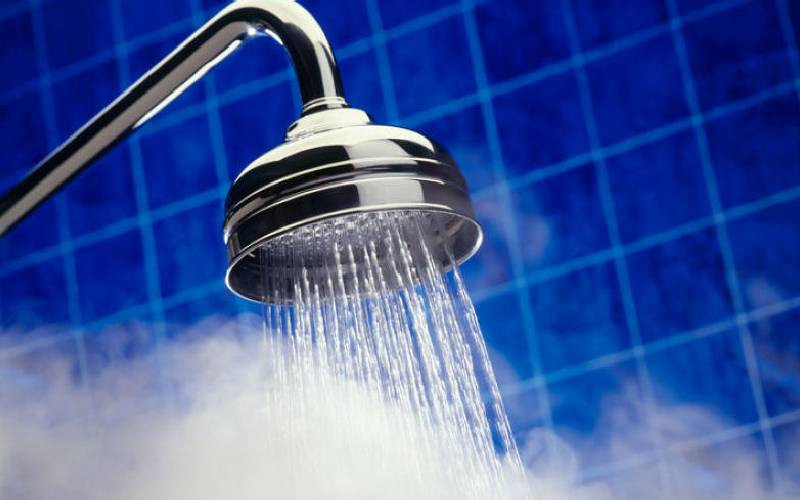
Is showering necessary every day? Well, skipping a shower invites side-eyes and whispers. Whether it’s after a long day, a sweaty matatu ride or just to cool off in humid coastal heat, bathing is a daily ritual. But once you step into the bathroom, another debate begins: should the water be hot, warm or cold?
Recent global surveys show that 55 per cent of people prefer warm showers, 30 per cent opt for hot showers, while 15 per cent regularly take cold showers. Urban areas favour hot showers due to electric and solar water heaters, while rural and coastal regions embrace cold showers because of warm climates and limited heating options. Cold showers are also trending among fitness enthusiasts and wellness advocates. According to the American Academy of Dermatology (AAD), warm (not hot) water is best for skin health. It cleanses while preventing excessive dryness, making it the safest option for daily use.
Hot showers are a favourite, especially on chilly mornings or after a long day. They relax muscles, ease tension and promote better sleep. The Sleep Foundation notes that a warm bath before bed helps regulate body temperature, making it easier to fall asleep. Hot steam also clears nasal congestion, offering relief during flu season.
However, prolonged exposure to hot water removes natural oils, causing dryness and irritation. It can also dilate blood vessels, sometimes leading to dizziness or lower blood pressure. For those with conditions like eczema, excessive heat can be a trigger.
On the other hand, cold showers are an instant wake-up call. They boost circulation, enhance alertness and release endorphins, the body’s feel-good hormones. Athletes rely on ice baths and cold showers to speed up muscle recovery. Cold water also tightens pores, reducing acne breakouts.
But it’s not for everyone. A sudden blast of cold water can shock the body, briefly increasing heart rate. For individuals with respiratory issues or heart conditions, sudden exposure may not be advisable. Warm showers offer the best balance. They relax muscles, cleanse the skin and maintain moisture without stripping essential oils. Health experts recommend warm showers for those with sensitive skin or respiratory conditions.
While preferences vary, dermatologists and health experts, including the World Health Organization (WHO) and the AAD, recommend warm showers over extreme hot or cold ones. WHO suggests that warm water is ideal for hygiene without irritating the skin. The AAD advises lukewarm showers lasting 10-15 minutes to maintain skin hydration. Whether you prefer the comfort of hot water, the shock of a cold rinse, or the balance of warmth, moderation is key. Experts suggest sticking to warm showers for daily use, while using hot or cold water selectively for specific benefits.
 The Standard Group Plc is a multi-media organization with investments in media
platforms spanning newspaper print operations, television, radio broadcasting,
digital and online services. The Standard Group is recognized as a leading
multi-media house in Kenya with a key influence in matters of national and
international interest.
The Standard Group Plc is a multi-media organization with investments in media
platforms spanning newspaper print operations, television, radio broadcasting,
digital and online services. The Standard Group is recognized as a leading
multi-media house in Kenya with a key influence in matters of national and
international interest.
 The Standard Group Plc is a multi-media organization with investments in media
platforms spanning newspaper print operations, television, radio broadcasting,
digital and online services. The Standard Group is recognized as a leading
multi-media house in Kenya with a key influence in matters of national and
international interest.
The Standard Group Plc is a multi-media organization with investments in media
platforms spanning newspaper print operations, television, radio broadcasting,
digital and online services. The Standard Group is recognized as a leading
multi-media house in Kenya with a key influence in matters of national and
international interest.











